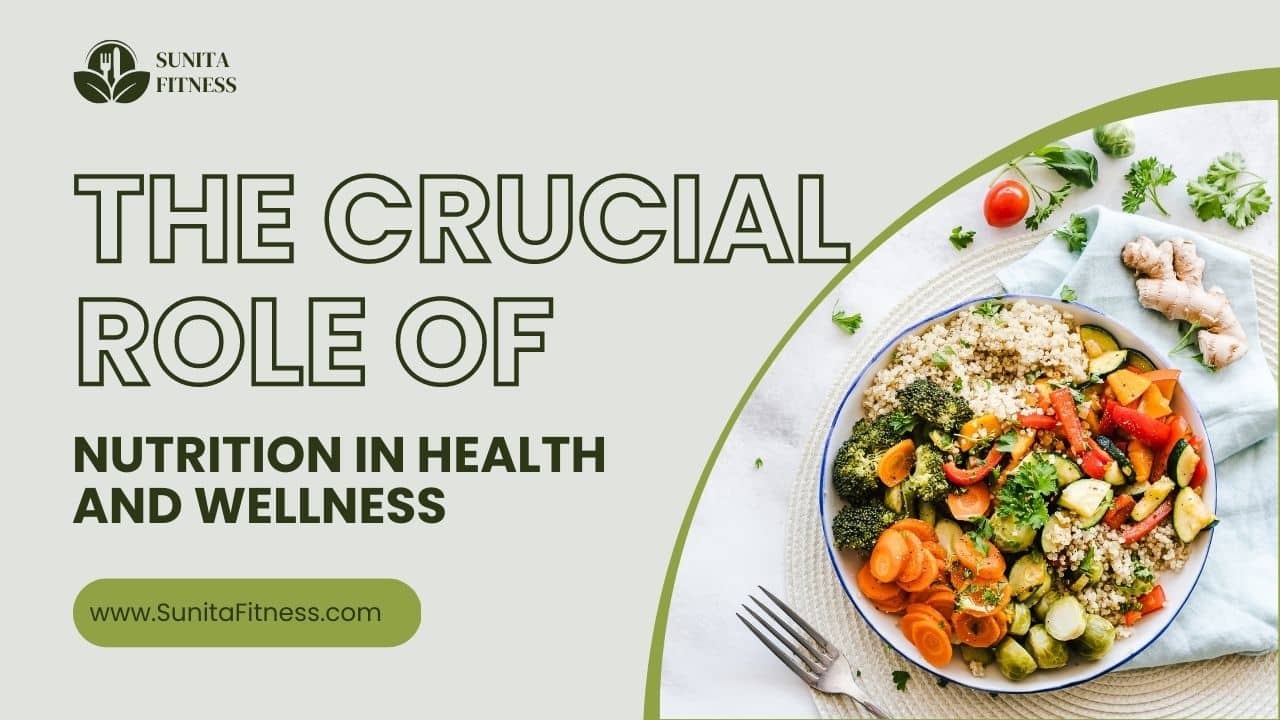Are you looking to boost your energy levels, improve your overall health, and lead a happier life? One simple solution is to pay closer attention to the food you consume. Nutritious foods provide the body with the essential vitamins, minerals, and nutrients required for optimal functioning. In this article, we’ll explore the role of nutrition in health and wellness and why it’s crucial to nourish your body with wholesome foods.
Introduction: Why Nutritions Matter for Your Health and Well-being
Nutrition refers to the study of how food impacts the body’s growth, maintenance, and repair processes. It involves understanding the various nutrients required for optimal functioning and how to balance them in your diet. Nutritious foods are essential for several reasons, including:
- Providing energy for daily activities
- Boosting the immune system
- Supporting healthy weight management
- Reducing the risk of chronic diseases
The food we consume plays a crucial role in determining our health and well-being. A balanced diet that includes a variety of whole foods can help prevent nutrient deficiencies and promote optimal health. But why exactly are nutritions essential for health and wellness?
Nutrition’s Crucial Role in Achieving Health and Wellness
Nutrition plays a vital role in maintaining the body’s overall health and wellness. Some of the key ways in which they benefit the body include:
1. Providing Essential Nutrients
Nutritious foods are packed with essential nutrients that the body requires for optimal functioning. These include vitamins, minerals, and macronutrients like carbohydrates, protein, and healthy fats. Consuming a diet that’s rich in these nutrients can help support various body functions and promote overall health.
2. Boosting Energy Levels
The food we consume serves as a source of energy for the body. Consuming nutritious foods can help boost energy levels, allowing us to feel more alert and focused throughout the day.
3. Supporting Immune Function
A healthy immune system is crucial for fighting off diseases and infections. Nutritious foods are packed with antioxidants and other nutrients that help support immune function and reduce the risk of illnesses.
4. Supporting Healthy Weight Management
Consuming a diet that’s high in nutrient-dense foods can help support healthy weight management. These foods are typically lower in calories and higher in fiber, making them more satiating and less likely to contribute to weight gain.
5. Reducing the Risk of Chronic Diseases
Nutritious foods have been shown to help reduce the risk of chronic diseases like diabetes, heart disease, and cancer. Consuming a balanced diet that’s rich in whole foods can help support various body functions and reduce the risk of developing these conditions.
FAQs About Nutrition and Health
1. What are the essential nutrients required for optimal health?
Essential nutrients required for optimal health include vitamins, minerals, and macronutrients like carbohydrates, protein, and healthy fats.
2. What are some examples of nutrient-dense foods?
Examples of nutrient-dense foods include leafy greens, berries, nuts and seeds, salmon, avocados, and sweet potatoes.
3. How can a balanced diet help reduce the risk of chronic diseases?
A balanced diet that’s rich in whole foods can help reduce the risk of chronic diseases by providing the body with essential nutrients and antioxidants that help support healthy functioning.
4. Can poor nutrition contribute to mental health issues?
Yes, poor nutrition can contribute to mental health issues like depression and anxiety. Consuming a balanced diet that’s rich in nutrients can help support optimal mental health.
5. Is it possible to get all the necessary nutrients from food alone?
Yes, it is possible to get all the necessary nutrients from food alone if you have a balanced and varied diet. A balanced diet should include a variety of nutrient-dense foods, including fruits, vegetables, whole grains, lean proteins, and healthy fats. However, some individuals may require supplements or fortified foods to meet their nutritional needs, such as those with specific health conditions, pregnant or breastfeeding women, or those following a restricted diet. It is important to consult with a healthcare professional to determine if additional supplementation is necessary.


Its like you read my mind! You appear to know a lot about this, like you
wrote the book in it or something. I think that you can do with some pics to
drive the message home a little bit, but instead of that, this
is wonderful blog. A fantastic read. I will certainly be back.
I love what you guys are up too. This kind of clever work and reporting!
Keep up the wonderful works guys I’ve added you guys to our blogroll.
Hello, for all time i used to check web site posts here
in the early hours in the break of day, because i love to find out more and more.
My spouse and I stumbled over here from a different website and thought I might as well check things out.
I like what I see so now i am following you. Look forward to looking at your web page for a second time.